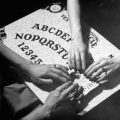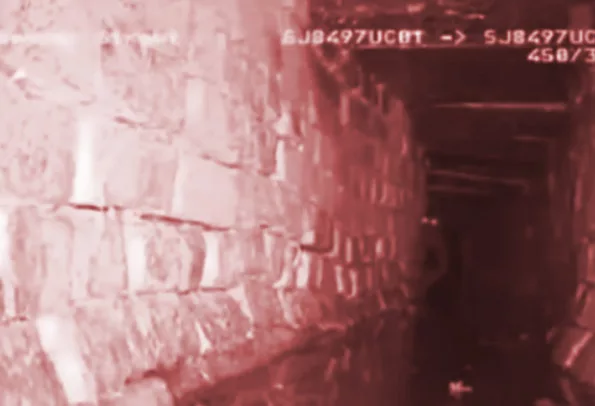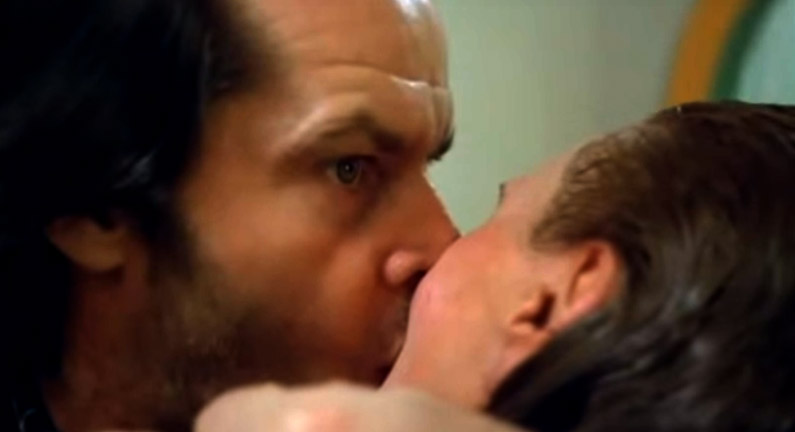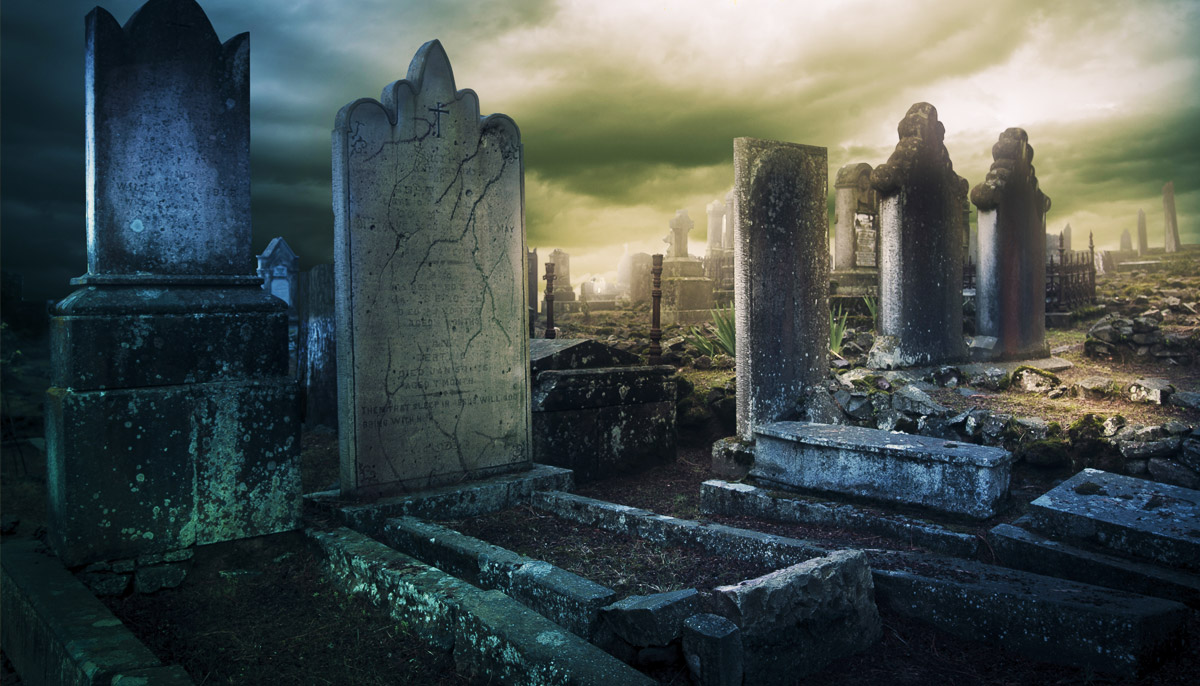
So what exactly do you want on your tombstone? While a fairly morbid question for most, it is one that some individuals have given their absolute attention to while alive so as all those visiting their final remains will have something to talk about.
Seven Of The Strangest And Most Disturbing Tombstones
Ouija Tombstone
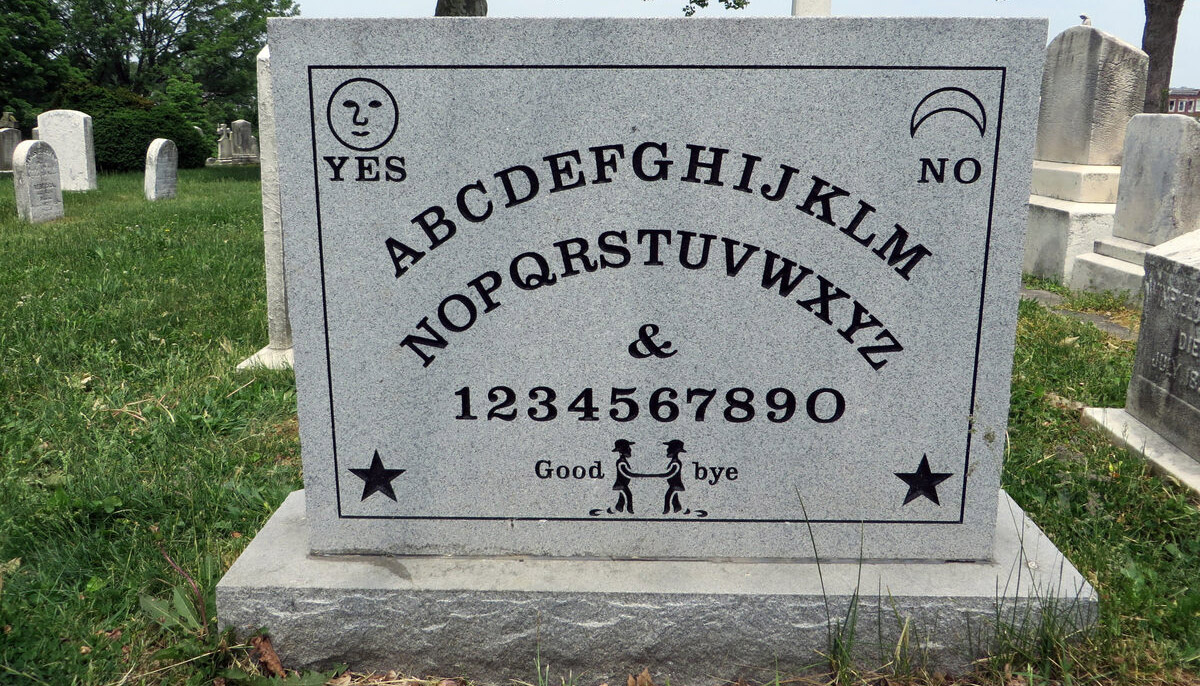
Elijah Bond is the man who was responsible for everyone’s favorite talking board to the spirits in the afterlife….The Ouija Board. Patented in 1891, Bond used his expertise as a lawyer and knowledge of the occult to get the board made and sold in specialty stores. He died in 1921 in Baltimore, Maryland, however, his grave was looked to something as a sort of pilgrimage for occultists. Being both hard to find and somewhat faded and broken, the paranormal community chipped in to get him something a little more fitting of his life’s work.
Houdini’s Grave
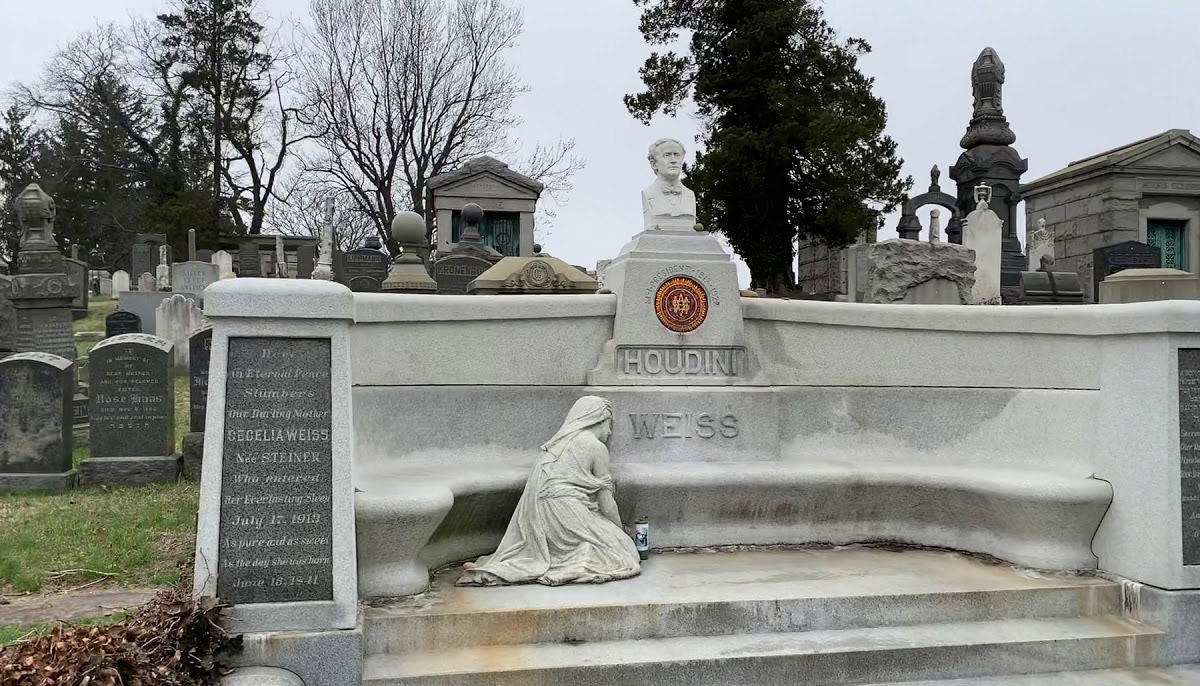
While not as visually alarming or disturbing as some other headstones, Harry Houdini’s grave in Machpelah Cemetery inside New York City is one of the more respected and disrespected resting places. A famous magician, Houdini was obsessed with the afterlife and frequently attempted to contact spirits on the other side. After dying from acute appendicitis, Houdini’s remains were finally laid to rest. A bust of his head was laid atop the tombstone. Over the decades his bust has been subject to cruel vandalism and is often replaced. Due to his obsession with the spirit world, many visit his grave and conduct seances there at times in hopes he can somehow communicate back. All this coupled with the overgrowth in the quiet cemetery, Houdini’s grave definitely gives off a scare factor to most.
Specimens Grave
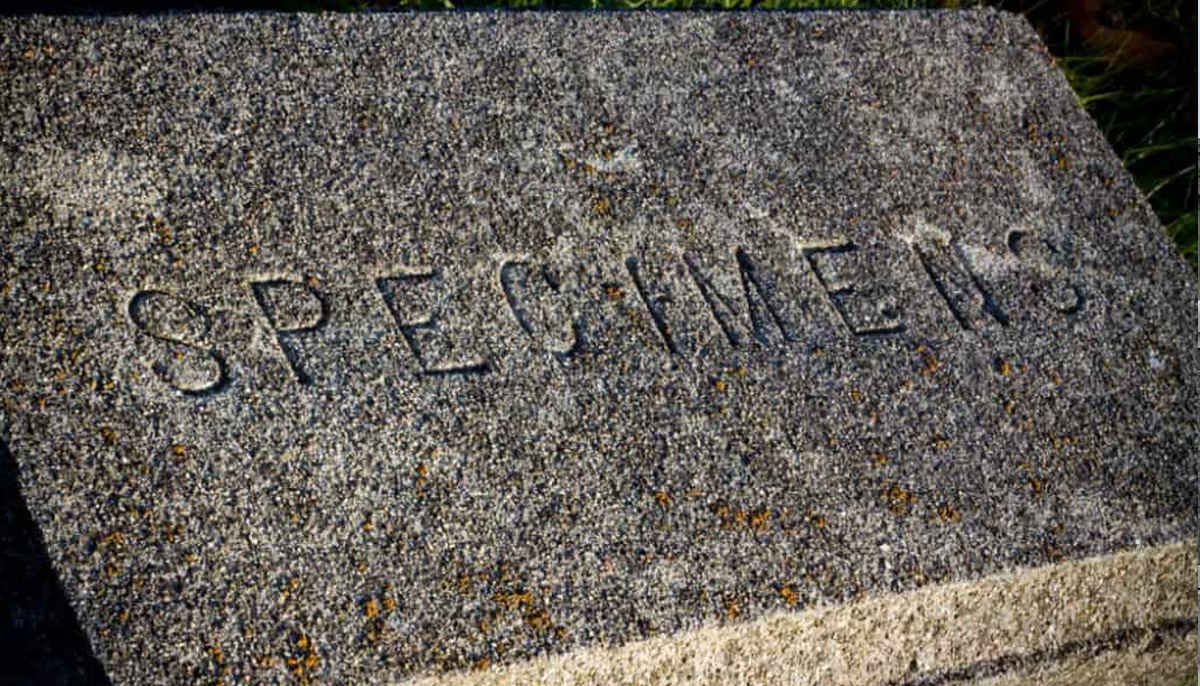
The Columbus State Hospital Asylum Cemetery in Central Ohio is not a fun place. The asylum was used to house scores of people including juveniles, unclaimed children, the criminally insane, and geriatric patients whom nobody could care for. The cemetery for the asylum is marked with scores of first names only, as some patients who checked in never gave formal last names. Other headstones are labeled simply, “M” or “F”, dictating that the remains were either male or female and the names unknown. However, one headstone in the cemetery is wholly thought-provoking in its chilling simplicity as it reads only, “Specimens”. The asylum has been out of commission for decades and nobody knows the true origin of the tombstone or what is underneath. Needless to say, the eerie curiosity factor on this one will likely never be answered.
Giles Corey Tombstone
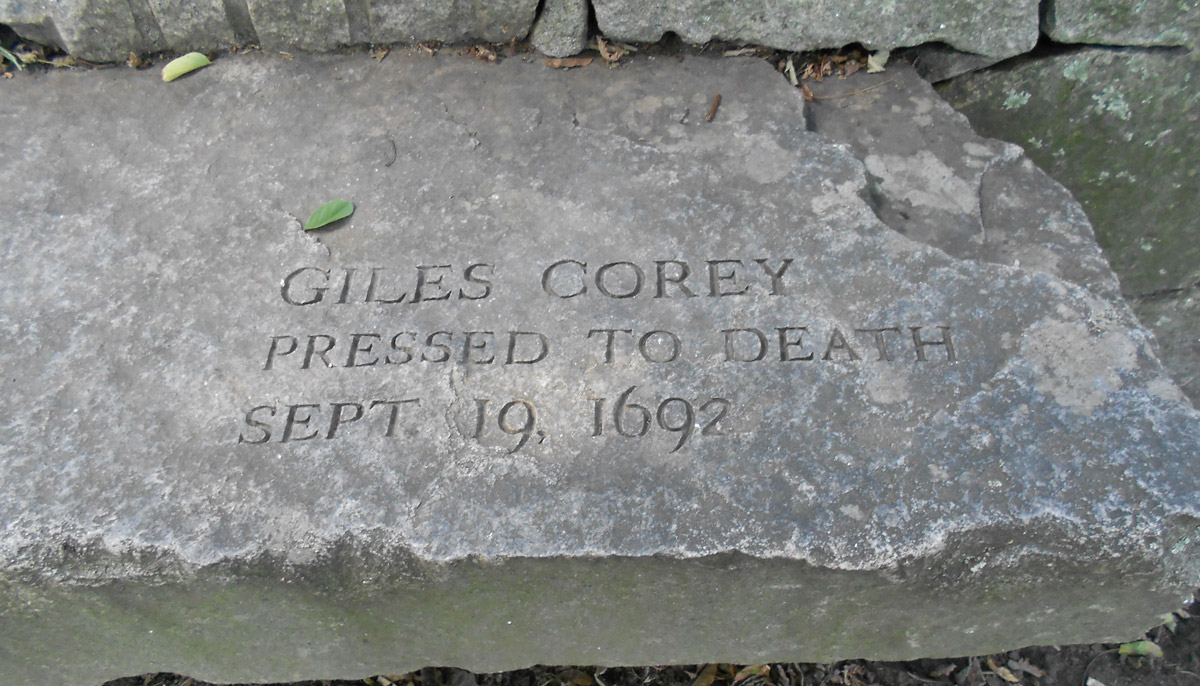
The surface area on a tombstone is albeit, a relatively small one listing the name, dates of birth, and death. But what about the cause of death? Inside the Howard Street Cemetery of Salem, Massachusetts is the eternal resting place of Giles Corey. Born in 1611, the man was a farmer in the community during the infamous Salem Witch Trials. Accused of practicing witchcraft, Corey was subject to a torture method called pressing. He was laid out and heavy stones were incrementally stacked on his body forcing incredible weight upon him by the sheriff and questioning judges. Corey is famous for when being asked to confess witchcraft, he breathlessly would whisper, “more weight.” The weight of the rocks were so heavy it repeatedly pressed his tongue out of his head which the sheriff would then in turn force back into his mouth with a nearby cane. Today Corey’s grave is the most famous at Howard Street.
Victim of The Beast 666
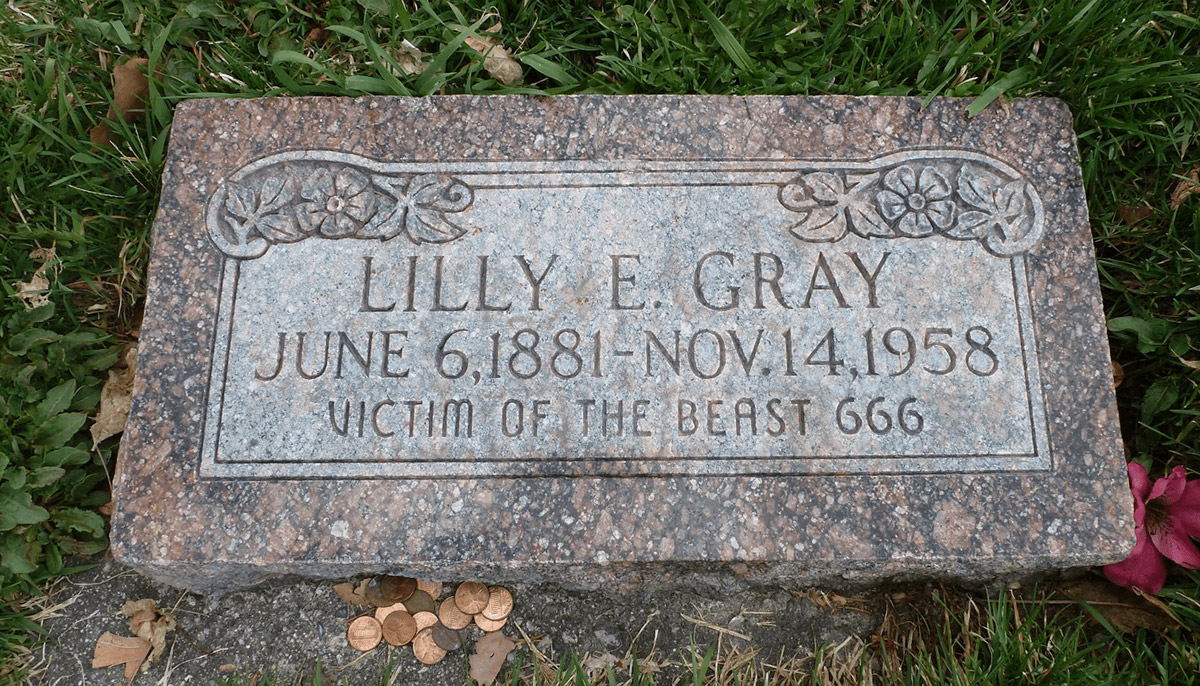
In the Salt Lake City Cemetery lies the grave of a woman named Lilly Gray. By all accounts, she was an ordinary woman who led something of a normal life. However, the controversy surrounds her has to do with the chilling epitaph that reads at the bottom, “Victim of the Beast 666.” Lilly’s third and final husband was a man named Elmer Gray, a petty burglar who had serious issues with the government and his former parole board. When Lilly died, Elmer had this specific tombstone made for her. At first glance, people are led to believe that Lilly made a deal with the Devil and somehow lost. However, the prevailing theory now is that there are some who refer to “the Beast 666” as the government body as a whole. Since Elmer believed Lilly was somehow double-crossed by them, that’s the best reasoning for the inscription. Strangely enough, when Elmer died, he requested to be buried on the opposite side of the cemetery away from Lilly’s grave.
Baby Monster Grave
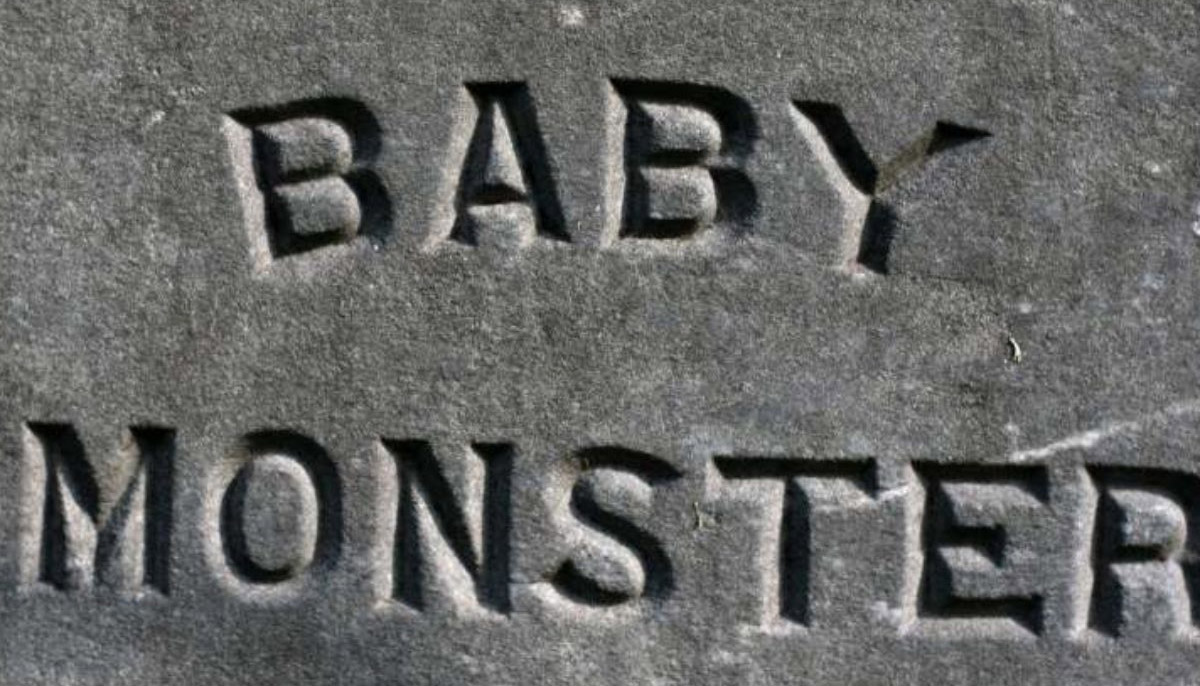
Written on the tombstone of a grave inside the Saar Pioneer Cemetery in King County, Washington is one of the more disturbing, yet bittersweet inscriptions that simply reads in bold, stone chiseled font…..”BABY MONSTER”. For anyone coming across this sad little grave, they are hit with two different sobering thoughts. One is that the grave holds the body of an infant who never got to experience life at all and died far too young. The other is that the infant was possibly born cruelly deformed, and in the late 19th Century, medical treatments would be incredibly harsh. Turns out the eternal joke is on cemetery bystanders because “Monster” is actually the baby’s surname and their father, John Monster, is actually buried next to the child.
Inez Clark Tombstone
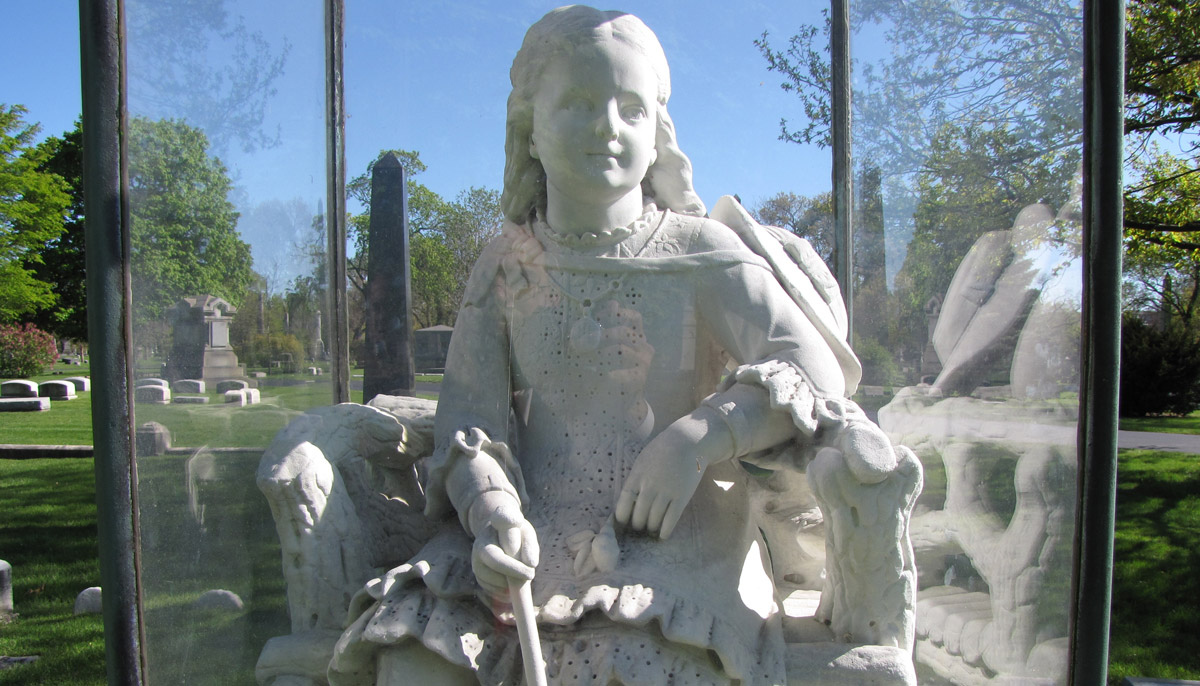
Some tombstones have sculptures of the deceased’s face, or classic art pieces made and attached to them. But what about full-body casts? The Graceland Cemetery of Chicago contains the headstone of young Inez Clark. Only seven years old when she died, her parents were heartbroken and before burial had a full, life-size sculpture of young Inez made. It was placed atop her grave and surrounded by a full glass case to protect her from the elements. A popular legend is that young Inez was terrified of storms growing up, and during vicious storms at the cemetery, people claim her sculpture leaves its glass case until the storm is over! Others have heard crying when standing near the grave. Overly creepy, many visitors claim that being in the cemetery late at night with a slow fog rolling in is just about the creepiest experience they’ve ever had.

